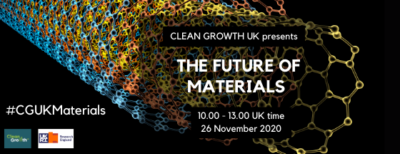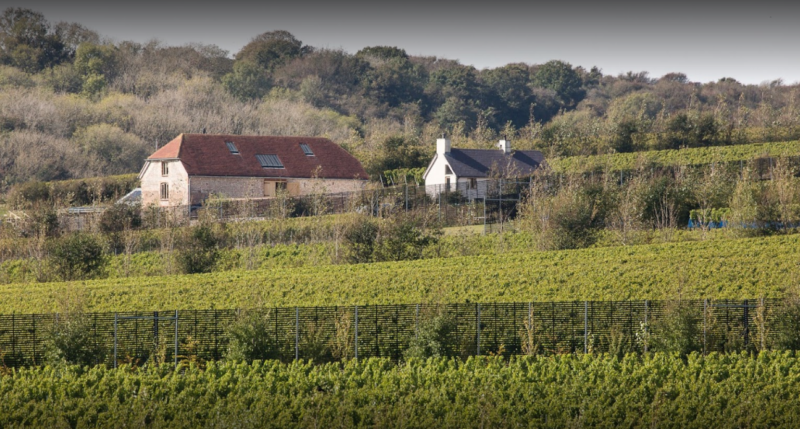The Future of Materials
From the mixing of copper and tin to make bronze to the digital revolution made possible by silicon, materials have shaped the course of humanity.
And as we find ourselves facing the defining crisis of our time, how can material innovation help us in the transition to a sustainable economy?
On the morning of 26 November, we will bring together industry leaders and entrepreneurs to share their insights into the future of consumer products and packaging materials and technologies. This event is an opportunity for buyers, specifiers and waste specialists across the supply chain to meet the innovators creating the materials being reinvented for the 21st century.
Join us to discuss:
- How public attention on plastic pollution is driving innovation and creating new markets
- The role of government in recycling infrastructure
- Creating a circular economy – why is it taking so long?
- The real cost of environmentally friendly products and packaging – The business impact of being sustainable
Expect lively debate, a window into the future, and the chance to network with like-minded business leaders and changemakers. Plus meet the startups leading the development of sustainable new materials in our virtual exhibition showcase.
About our speakers
Stephen Clarke, Head of Communications at Loop and Terracycle
Loop’s innovative reusable packaging model has hit headlines recently, demonstrating that circular business models can be good for business as well as for the environment. Some of the world’s biggest brands, including Tesco and , are piloting a new system of high-quality packaging that can be returned and refilled again and again. Stephen is Head of Communications at Loop and social enterprise partner TerraCycle, the world’s foremost leader in the recycling industry for hard-to-recycle waste and one of the fastest growing eco-friendly companies in the world.
TerraCycle works with over one hundred major brands in 21 countries across the globe to collect used packaging and products (everything from biscuit wrappers, to pens, to air fresheners and even the likes of cigarette waste etc.) that would otherwise be destined for landfills. It repurposes that waste into new eco-friendly materials and products.
Dr David Greenfield, Managing Director and Founder of SOENECSDavid is managing director and founder of SOENECS, a research and innovation practice in 2014 following 15 years in leadership roles in local and regional government. SOENECS provide strategic research, advice, training, solutions, chairing and facilitation on the topics of circular economy, environmental auditing, waste & resource management. His innovative projects include co-founding www.potholespotter.co.uk and www.techtakeback.co.uk. David is leading the creation of the Brighton & Hove City Council Circular Economy route map.
David is responsible for External Affairs in Europe for the “Circular Economy Club (CEC)”, he is also a Mentor and the organiser of CEC London, co-organiser of Circular Brighton & Hove, he is non-executive Chair of the CIWM Enterprises Board, Trustee and Director of Freegle, Chair of the ICE Resource Management Panel, Government Adviser to DEFRA and MHCLG and advisor and past chair to the National Waste Network Chairs (WNC).
Samantha Bunyan, Founder of Cecence
Founder, Creative Director & Head of Industry Engagement at award winning composite innovation company Cecence. Samantha’s focus is on coordinating collaborative development programmes and harnessing investment in new technologies and sustainable materials. Winner of Farnborough Aerospace Consortium’s Woman in Aerospace Award 2019 she believes in ‘Driving Innovation through Collaboration’ and in challenging the perception that lightweight composites need to be manufactured using carbon fibre and epoxy resin systems. She is excited to be part of a pioneering design and manufacturing movement which promotes the use of recycled materials, natural fibres and bio based resins wherever possible.
Stuart Brittle, Managing Director and Founder of MedisortA mechanical engineer by training who started his career manufacturing building materials, where Stuart progressed from Project Engineer to Deputy MD. Using waste ash from power stations to make insulating blocks for house building, he has been keen on waste reduction and reuse forever.
In a change of career, Stuart started Medisort, a healthcare waste collection and treatment company in West Sussex and is now actively seeking sustainable ways to safely recycle clinical waste into valuable, secondary raw materials.
Liz Gyekye, Environmental Journalist
Liz has more than ten years’ experience working as a journalist within the resource and waste management industry, including working for ENDS Europe, Packaging News, Bioenergy Insight and Materials Recycling World.



